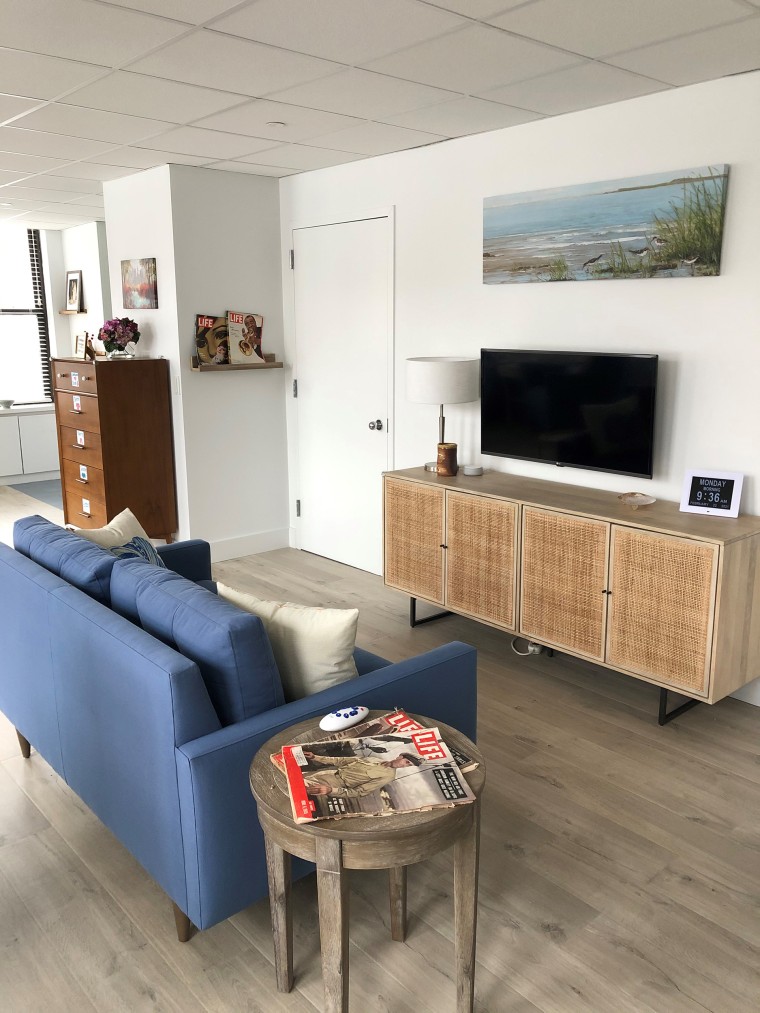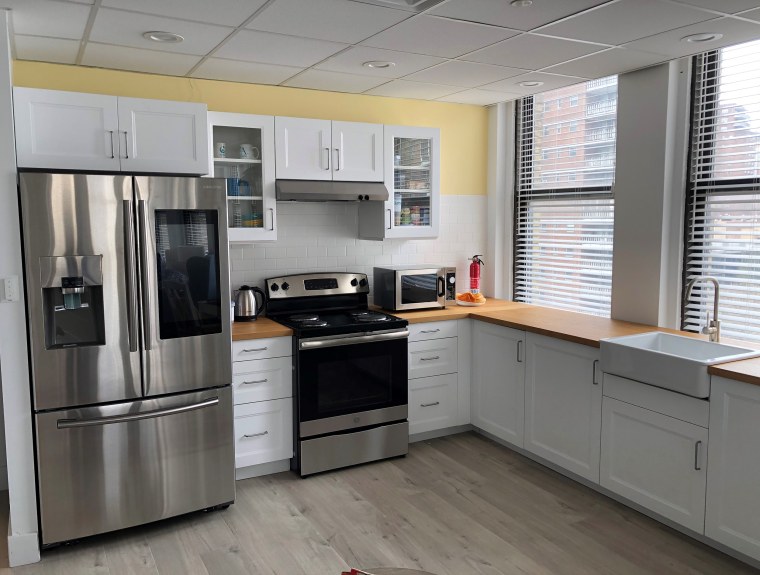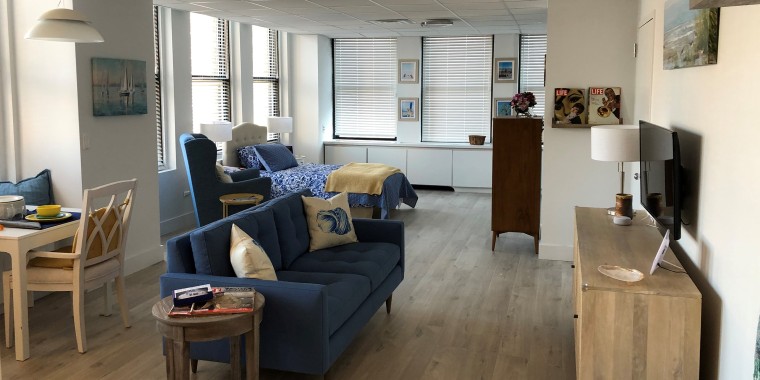Many people whose loved ones suffer from Alzheimer's disease struggle with the idea of leaving them home alone, worried about whether they'll be safe — and yet, they know independence is important, too.
With that struggle in mind, a new "dementia-friendly" model apartment was recently constructed in New York City, aiming to show people how to make their home safer for people who have diseases like Alzheimer's.
"It's a lot of things people just really don't think about," Jennifer Reeder, a clinical social worker and director of education and social services for the Alzheimer's Foundation of America, told TODAY.
The apartment includes safety features like a stove cover and automatic fire extinguishers, a round table instead of one with sharp corners, a smart refrigerator that allows caregivers to see inside remotely so they know if someone has eaten, as well as design touches meant to enhance someone's mood, like the use of calming colors and artwork, and circadian lighting to support sleep.
The organization built the apartment in its Manhattan offices and worked with an interior designer to create a living space that's designed to improve the quality of life for someone who has a dementia-related illness (which includes but is not limited to Alzheimer's disease). While the apartment is a full-scale studio and appears move-in ready, it's not meant for tenants, but simply as a guide for people to learn about some modifications they can make to their own homes.
Here are a few key takeaways from the space.
Color
"We tried to make the color of the apartment very soothing, versus bright and energetic, because that can sometimes be overstimulating for individuals with Alzheimer's," Reeder said. "So we chose very cool colors."
Color contrast is important to consider, too, since Alzheimer's can affect people's vision.

"Let's say somebody with Alzheimer's or another dementia-related illness walks into a bathroom, and everything is white in the bathroom, including the sink and the toilet — they may not be able to see the sink or the toilet," Reeder said. "They can't see each of the objects. Everything just looks very white to them."
In that scenario, getting a colored toilet seat cover or painting the sink another color would be helpful. On the flip side, Reeder noted that, for people who have loved ones who try to leave the home unsupervised, painting the door the same color as the wall so that it blends in could help.
Lighting
Lighting is important to consider for visibility purposes, but also for mood. The apartment has optimum glare-free lighting throughout to make it easy to see, and also because glares can be disorienting for people who have Alzheimer's. It also uses circadian lighting, which means that the blue light levels adjust to mimic natural night-day patterns, which can improve sleep and minimize agitation.
Making this switch at home can be simple. "You don't have to get an entire lighting system; you could just get the light bulbs," Reeder said. "They cost about $25. That can really help someone be able to ease into the evening and reduce sundowning," which refers to the increased confusion and anxiety some people begin to experience around dusk.
Night lights are another inexpensive addition that could make the home more dementia-friendly, so the person is able to see if they need to get up at night to use the bathroom.
Decor
When it comes to decor, simple is often better. Clutter can be problematic for many reasons — it can worsen someone's mood, create tripping hazards and be disorienting for someone with dementia.
"Be mindful of ornaments and decorations," Reeder said. "When you think about the holidays, people put sparkly things everywhere. But that can be really difficult for someone who has Alzheimer's disease."
That doesn't mean the home has to be a bare slate, though. The apartment features calming, soothing paintings of beach scenes, for example, as well as vintage magazines on shelves and tables that help remind people about their past, and may be comforting.

Technology
Smart devices can be hugely helpful for caregivers, especially if they don't live with their loved one who has dementia.
The apartment features a smart refrigerator in the kitchen that lets caregivers see inside remotely, so they know what food has been eaten, as well as automatic fire extinguishers, and smart burners on the oven that only get warm enough to heat up food. In the living room, a digital clock displays the time, date and the day of the week to help with orientation, and a simple TV remote that can be pre-programmed to five favorite channels.
Technology can be expensive, but it doesn't necessarily have to be. Simple devices like pet cameras that sync to a phone can help someone keep an eye on a loved one with Alzheimer's. Virtual assistants like Alexa can also be programmed to remind someone to take medicine or eat lunch.
Related:
People can learn more tips and take a virtual tour of the apartment here. The Alzheimer's Foundation of America also plans to offer in-person tours soon.
Reeder stressed that while there are many, many tips and suggestions people may glean from the apartment, not everything is going to work for everyone.
"It's really good to always have a baseline for your loved one so that you can really assess where a person is at, what their strengths are, what their challenges are, so you can help maintain a person's independence as long as possible," she said.


